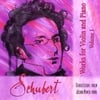A parent of some of my students sent me a link to an interesting story about a new music education poll by Harris Interactive. People who study music during student life are more likely to earn more and pursue higher education later in life. Here’s a quote from the article (on Yahoo! News):
“The poll by Harris Interactive, an independent research company, showed that 88 percent of people with a post-graduate education were involved in music while in school, and 83 percent of people earning $150,000 or more had a music education.” (Source.)
There is also a press release from Harris Interactive that includes some more discussion of the implications of the results. The National Association for Music Educators was also involved in the study, and executive director John Mahlmann has some choice words about the state of music education today:
“Research confirms that music education at an early age greatly increases the likelihood that a child will grow up to seek higher education and ultimately earn a higher salary. The sad irony is that ‘No Child Left Behind’ is intended to better prepare our children for the real world, yet it’s leaving music behind despite its proven benefits...While music clearly corresponds to higher performing students and adults, student access to music education had dropped about 20 percent in recent years, thanks in large part to the constraints of the No Child Left Behind Act.” (Source.)
It is clear that so many of the skills important for success in life are supported and strengthened through the intensive study of music. Everyone can benefit from good musical training. It can teach us about practical discipline and improve real-time focus. Musical training inspires a healthy attitude towards constructive criticism and can teach us how to manage complex responsibilities. It sensitizes us to the world in so many ways. In my opinion (which is shared by many), our national leadership on education needs to wake up and respond constructively to these realities.
Let’s also not forget about that little side-benefit called “personal fulfillment” that music-making can provide. One of the best aspects of being a music teacher is witnessing the look of deep satisfaction on a child’s face after an accomplished performance or an overcome hurdle. All music teachers know this look and what it means. It’s certainly a great enough experience on its own. But when I consider the other long-term effects an accumulation of achievements in music provides, it feels even better to be a music teacher. Read More......







